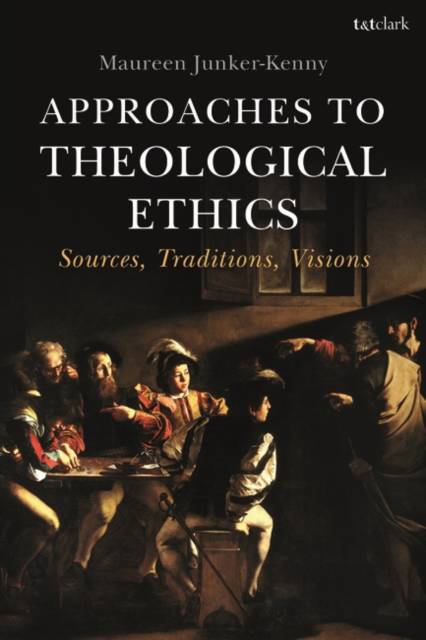
Bedankt voor het vertrouwen het afgelopen jaar! Om jou te bedanken bieden we GRATIS verzending (in België) aan op alles gedurende de hele maand januari.
- Afhalen na 1 uur in een winkel met voorraad
- In januari gratis thuislevering in België
- Ruim aanbod met 7 miljoen producten
Bedankt voor het vertrouwen het afgelopen jaar! Om jou te bedanken bieden we GRATIS verzending (in België) aan op alles gedurende de hele maand januari.
- Afhalen na 1 uur in een winkel met voorraad
- In januari gratis thuislevering in België
- Ruim aanbod met 7 miljoen producten
Zoeken
Approaches to Theological Ethics
Sources, Traditions, Visions
Maureen Junker-Kenny
Hardcover | Engels
€ 203,95
+ 407 punten
Uitvoering
Omschrijving
Maureen Junker-Kenny offers a systematic overview of the discipline of theological ethics in the variety of its approaches, which draw upon different philosophical traditions and theological visions in treating its sources. Part One examines the four sources of theological ethics: the Bible, tradition, philosophical accounts of the human, and the individual human sciences. Part Two compares five frameworks in English- and German-speaking theological ethics, based on virtue, worship, natural law, autonomy, and feminist analyses. Part Three compares three types of vision - integralist, praxis-oriented, and discourse-focused -, and Junker-Kenny concludes by situating the investigation of the discipline within contemporary philosophical and theological exchanges on religion in the public sphere.
The book provides a framework in which students can locate the specific use of core ethical concepts and argumentations, comparing how each approach relates to the Bible, to historical reason, theological thought, practical self-understandings and interdisciplinary perspectives on ethics in a scientific and technological culture.
In an age of globalisation where different cultures, religions, lifestyles and values meet in the workplace, in schools, and in public spaces shaped by religious and cultural traditions, it is necessary to foster the ability to create possibilities and venues for dialogue between different self-understandings. Analysing the variety of approaches to theological ethics helps articulate different visions of what constitutes a fulfilled life, of how the moral vocation of each human being can be supported, and of the role of the Christian faith for ethics.
The book provides a framework in which students can locate the specific use of core ethical concepts and argumentations, comparing how each approach relates to the Bible, to historical reason, theological thought, practical self-understandings and interdisciplinary perspectives on ethics in a scientific and technological culture.
In an age of globalisation where different cultures, religions, lifestyles and values meet in the workplace, in schools, and in public spaces shaped by religious and cultural traditions, it is necessary to foster the ability to create possibilities and venues for dialogue between different self-understandings. Analysing the variety of approaches to theological ethics helps articulate different visions of what constitutes a fulfilled life, of how the moral vocation of each human being can be supported, and of the role of the Christian faith for ethics.
Specificaties
Betrokkenen
- Auteur(s):
- Uitgeverij:
Inhoud
- Aantal bladzijden:
- 272
- Taal:
- Engels
Eigenschappen
- Productcode (EAN):
- 9780567682963
- Verschijningsdatum:
- 14/11/2019
- Uitvoering:
- Hardcover
- Formaat:
- Genaaid
- Afmetingen:
- 156 mm x 234 mm
- Gewicht:
- 553 g

Alleen bij Standaard Boekhandel
+ 407 punten op je klantenkaart van Standaard Boekhandel
Beoordelingen
We publiceren alleen reviews die voldoen aan de voorwaarden voor reviews. Bekijk onze voorwaarden voor reviews.









